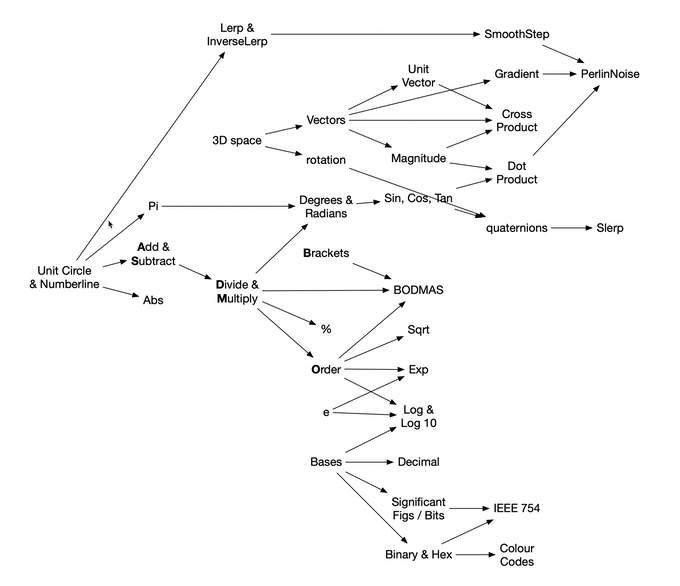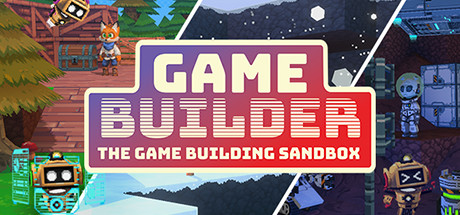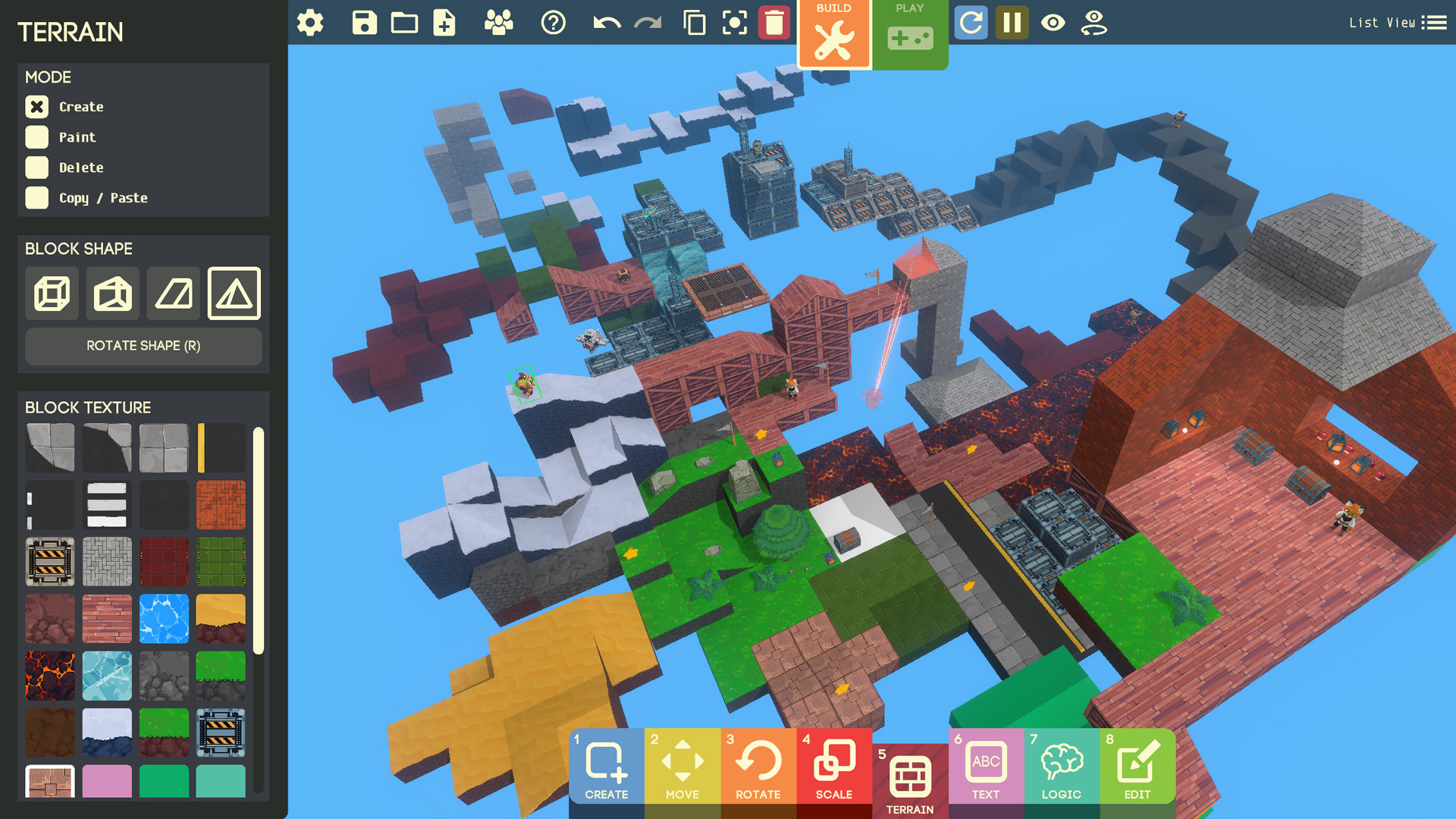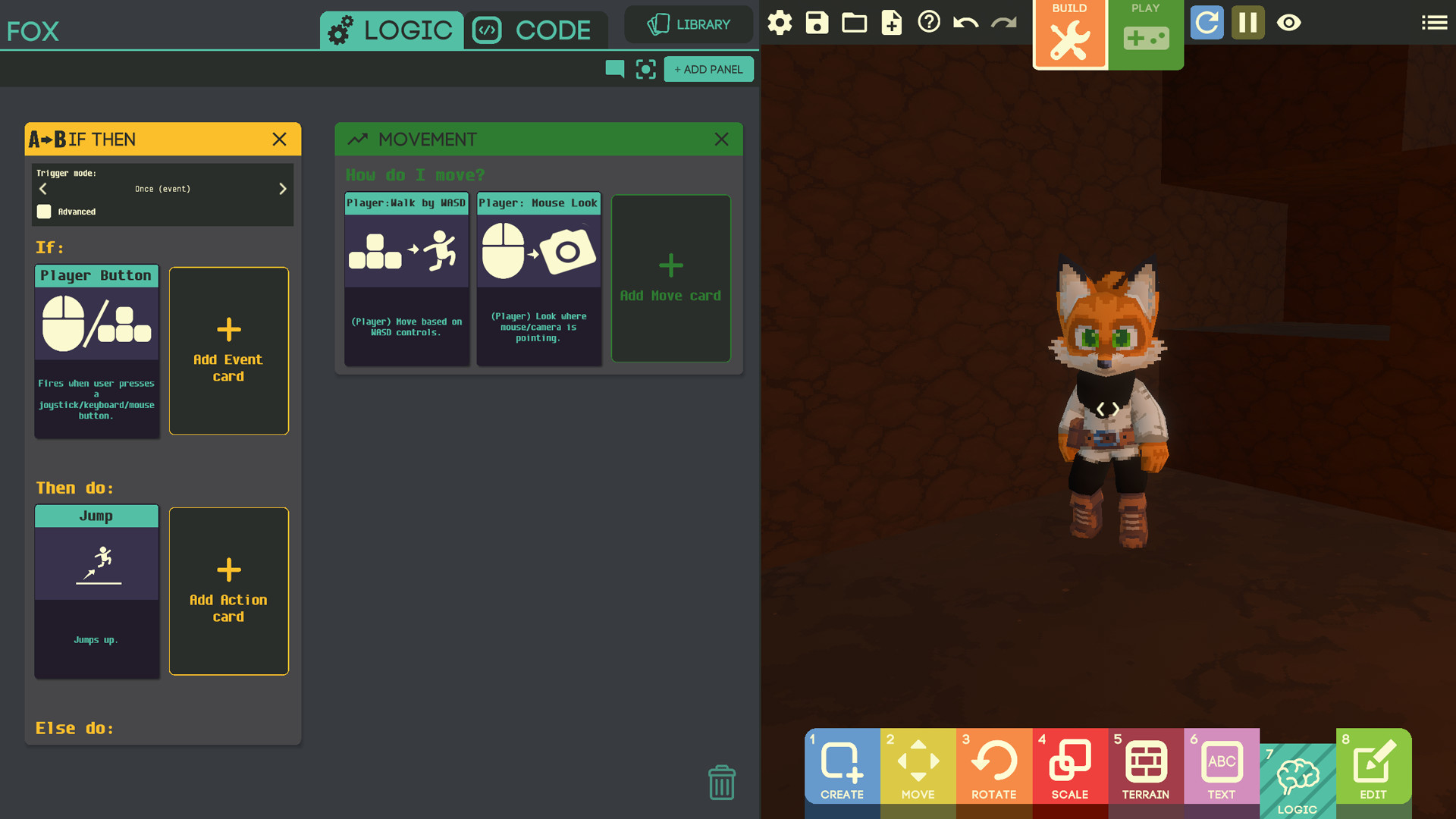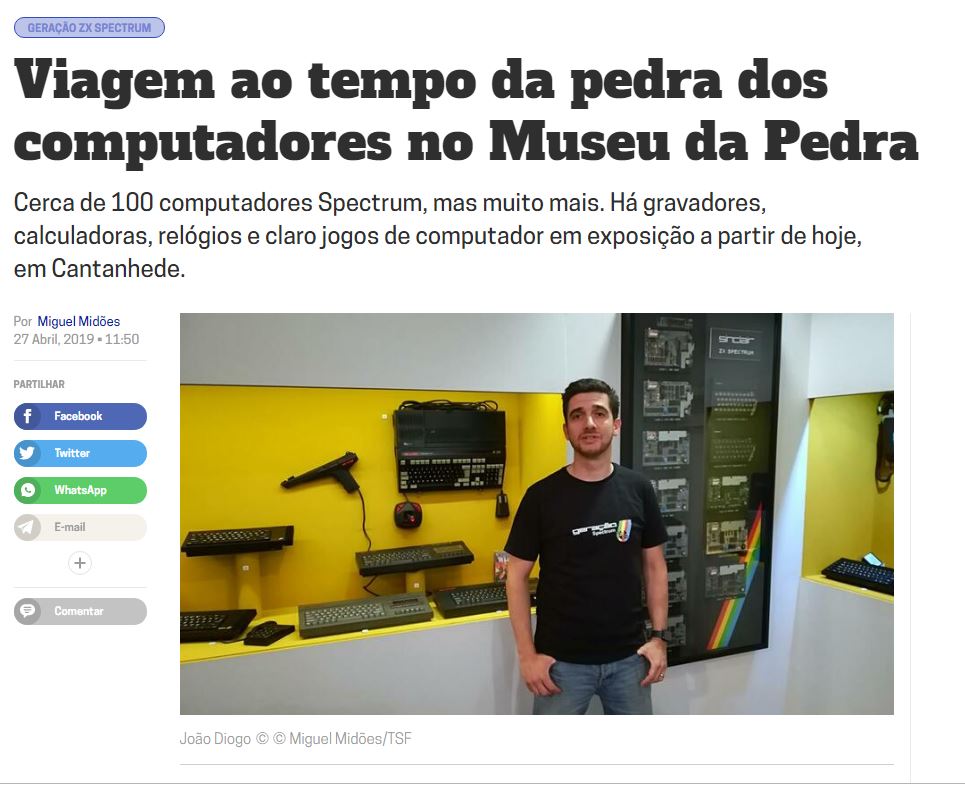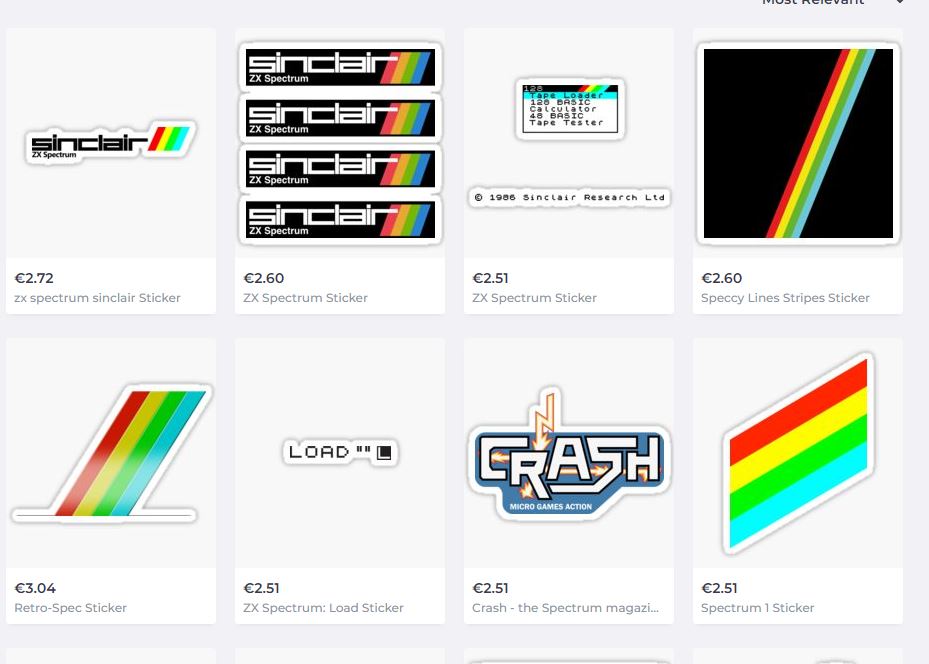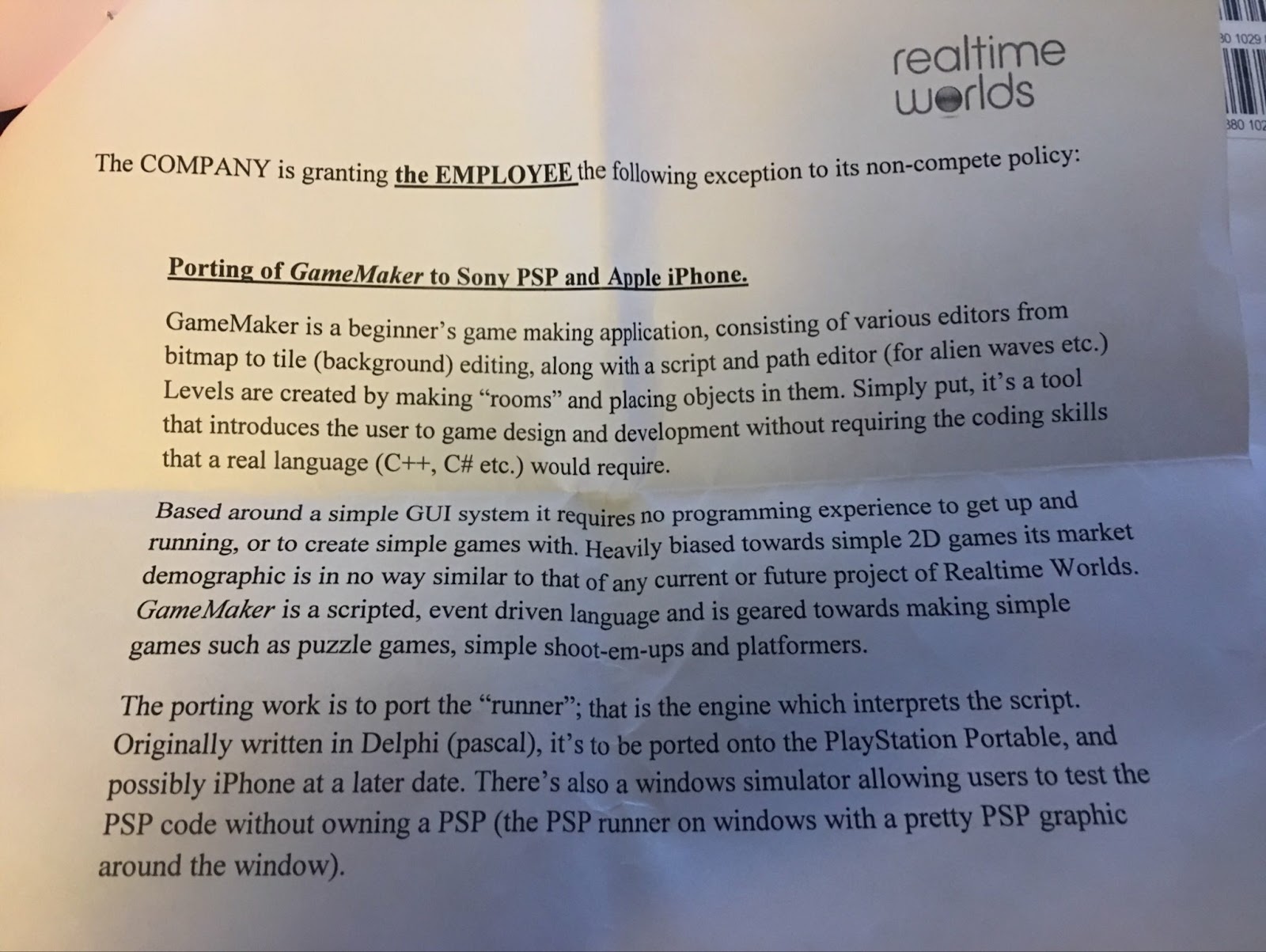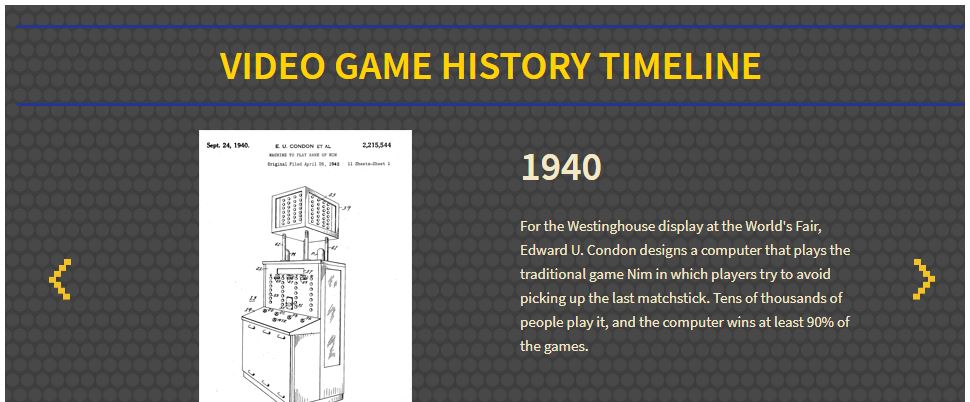Category: Talks
Campanha para um curso de matemátia
Está a decorrer uma campanha no famoso site kickstarter sobre o tema de matemática para os videojogos. O autor deste projeto é o não menos famoso Ben Tristem sendo o resultado final um curso no site da Udemy e que vai abordaros temas de: basic arithmetic, matrices, vectors, number systems and bases, projectiles, constant acceleration formula, combinations, basic probability, trigonometry, rotations including quaternions, algebra, complex numbers, interpolation.
Parece que a melhor opção é a de 23 ou 27 libras (dependendo se as metas forem atingidas) pois depois dá direito a escolher o acesso a dois dos seguintes cursos:
Creativity for Coders: How to Create Ideas from Scratch
Unreal Engine Blueprint Developer: Learn Visual Scripting
Blender Environment Artist: Create 3D Worlds From Scratch
Discovering Godot: Make Video Games in Python-like GDScript
Unity Tech Art: Realistic Lighting For Game Development
Unreal Multiplayer Master: Online Game Development In C++
Blender Character Creator: Rigging Humanoid 3D Characters
Unreal VR Dev: Make VR Experiences with Unreal Engine in C++
RPG Core Combat Creator: Learn Intermediate Unity C# Coding
Complete C# Unity Developer 3D: Learn to Code Making Games
Finish It! Motivation & Processes For Game & App Development
The Board Game Developer: Become A Game Design Ninja
How To Get A Job In The Video Game Industry
Complete C# Unity Developer 2D: Learn to Code Making Games
Complete Blender Creator: Learn 3D Modelling for Beginners
Unreal Engine C++ Developer: Learn C++ and Make Video Games
+infos(campanha): LINK
+infos(oficial): https://www.gamedev.tv/
Keysticks, usar um comando em PC.
Existem por aí umas ferramentas catitas e esta é mais uma. A possibilidade de jogar em pleno com o controlador de uma consola em ambiente PC Windows. E é open source :)
+infos(oficial): https://keysticks.net/
Game Builder (com apoio da Goolgle)
O mundo dos motores de videojogos está ao rubro, nem que seja pela “nova” tendência que é a de colocar os mais miúdos a programar computadores e outros que tal. O mundo dos videojogos é um daqueles palcos que consegue cativar quase qualquer um e talvez (e não só) por esse motivo surge mais uma aplicação gratuita que permite a construção de videojogos em 3D e com a aposta no multiplayer, para fazer uso da internet e afins :)
+infos(download): https://store.steampowered.com/app/929860/Game_Builder/
+infos(fonte): LINK
Game Software Engineer (em Lisboa)
- Prototype and implement voice-first game concepts on our target platforms
- Work closely with game designers to translate ideas into code
- Design, monitor and maintain our live services, ensuring our games are available to players 24/7/365
+infos(oficial): doppiogames.com
12 Minutes (Xbox E3 2019)
E foi assim a apresentação mundial durante o evento da E3 2019 por parte da malta da XBOX. Um jogo feito por um português mas do outro lado do mundo :)
+infos(oficial): http://twelveminutesgame.com/
Mémoire 44 – um daqueles jogos de tabuleiro :)
| Numbers of players | 2 players (possibility to play in teams) |
| Recommended age | From the age of 8 |
| Duration of a game | about 30 minutes |
| Author | Richard Borg |
| illustrators | Cyrille Daujean , Claude Rica , Julien Delval |
| Editor | Days of Wonder |
| Price | $ 55 |
“Conclusion
Memory 44 is a strategy / wargame game in which one moves one’s units on a board to carry out one’s mission. We were surprised by the astonishing simplicity of the rules and their formidable efficiency. Mémoire 44 proposes to immerse oneself in the great battles that were decisive for the Second World War.
Few actions per turn, we must deal with the command cards that we have in hand to carry out its mission. From this constraint will be born different strategies at each part for a very consistent replayability. Respect for history and the accuracy of the introductory paragraphs of the different scenarios make it almost an educational game, but without being too insistent or cumbersome. Moreover, the refractory to the principle can completely dispense with the reading of the paragraphs.
We will never have had as much fun playing the little soldiers as in a game of Memory 44 !”
Um texto interessante acerca deste belo jogo :)
+infos(oficial): LINK
Sairão do Game Dev Meet os nossos próximos videojogos?
Uma video reportagem com o titulo “Sairão do Game Dev Meet os nossos próximos videojogos?” por Francisco Graça
+infos(reportagem): LINK
Uma reportagem sobre a exposição de ZX Spectrum
Uma vez mais o destaque para uma exposição que está a decorrer até novembro de 2019 em Cantanhede, acerca da história do ZX Spectrum.
+infos(reportagem): LINK
ZX Spectrum stickers
Tão porreiro.. alguém se deu ao trabalho de construir stickers acerca do ZX Spectrum :) nice!
+infos(loja): LINK
Instalar o Visual Studio 2019 profissional (off-line)
Já está disponivel a instalação do Visual Studio 2019, qualquer uma das versões, inclusive a versão profissional. A instalação off-line pode ser feita usando o assistente de download e activando a opção de:
assim e em formas de etapas, fazer:
1) download do vs_professional.exe
2) correr o ficheiro através da linha de comandos, escrevendo:
vs_professional.exe – -layout c:\tempVB – -lang en-US (os dois – – são juntos, mas aqui ficam colados como se fosse apenas um)
3) abrir a pasta c:\tempVB e correr o vs_setup.exe para instalar
(esta versão vai fazer download de tudo relacionado com o VB profissional, para a pasta c:\tempVB)
+infos(oficial): LINK
International Game Developers Association (IGDA)
A International Game Developers Association é uma associação internacional de malta que anda a desenvolver videojogos. Esta associação está localizada no Canadá, e vai fazendo alguma publicidade acerca dos eventos que se vão realizando um pouco por todo o mundo relacionados por exemplo com conferências.
É interessante que na página se possam aceder a alguns recursos, alguns deles dicas, relacionados com o desenvolvimento de videojogos.
alguns desses recursos são links para outras referências como, estatísticas:
Chart Track
Datamonitor
DFC Intelligence
Electronic Entertainment Design and Research (EEDAR)
ESA Industry Facts
Forrester Research
Gartner Group
IDC
IHS Technology
International Development Group
Jon Peddie Research
Juniper Research
Magic Box Game Charts
NPD
Research and Markets
Strategy Analytics
Videogame Sales Charts
noticias, eventos ou acesso a listas de empresas.
+infos(recursos oficiais): https://www.igda.org/page/resources
+infos(questionários oficiais): https://www.igda.org/page/surveys
How to publish mobile game, and avoid making my mistakes por u/litemesa
Gostei da seguinte partilha.. (atualização, recebi um email “ameaçador” do tipo da empresa a que se refere este post. optei por manter o post que foi “copiado” mas retirei o nome da dita empresa e não usei o nome original da empresa legal@nexxstudio.com
”
Hey game devs, I would like to share my story of a game launch. I would like to tell about traps, lie in wait for indie-developer while he works with publisher.
Story of my game has started in 2015 – I’ve started learning Unity3d, and as a result I made my first (actually, second, which I’m not shy to show) game: “A GAME”, where player drives a car and must avoid obstacles, while speed constantly increases:
A GAME gameplay
Development took about a year. Then I decided to launch it by myself: I thought I made super-duper-awesome game, killer of Crossy Road and so on. I thought I didn’t need a publisher and game will be a hit as soon as I press “Publish” button. Well, that was a good experience: I could throw a stone in the ocean storm – the impact would be the same as self-launch. This experience was very helpful, and I started to think more practically: we often hear success stories from here and there, and we think we can repeat them easily, missing a lot of details and complexity by the way, focusing on results – success.
Thus, wiping tears from face and analyzing situation I understood 3 things:
-
Safety in numbers – develop game by yourself – it’s fun, but not very productive
-
I need a publisher – he can value the game unprejudiced, and advice on what should be improved, he can create a marketing strategy and increase chances of featuring
-
I need to continue creating games in the same genre and setting – this shortens development time and produces results quicker, thereby decreases risk of fails
I took these points into account while developing next game – A GAME
This time the game was developed by two people, game was based on original A GAME – this allowed us to focus on gameplay, and evolve runner into racing game with tracks, rivals and car’s upgrades. When development was done, we started looking for a publisher.
Eventually, triumph of indie-developer: after dozens of press-releases, negotiations and rejections the publisher was found, agreement signed, game released and even featured in AppStore – we were over the moon! But, as we soon discovered, fly of ointment awaited us in the future.
Few words about publisher: Malaysian publisher PUBLISHER, that specializes on mobile casual games. To all appearances PUBLISHER consists from one person – MR GONG.
After the game launch (January 2018) pace of work increased: work on bugs, work on new features and so on.
As well, we were waiting for 2 months period from launch date – approximately at this time publisher should send us first Report about income and expenses, and we could get our first earnings. And from this point the most interesting part has started: publisher began to delay with Reports. At first, he wrote that Ad Networks didn’t provide him data about earnings still, then – that he was on game conference and didn’t have time to calculate income, then – that he was super busy with launching of another game and so on and so on. At the same time, we actively worked on patch releases: “make haste while the sun shines” – said publisher… we awoke in September of 2018 – we realized we needed help.
We found a lawyer, and when she read the contract, she became horrified: neither point of contract defended developer’s rights, and on the contrary: 100% points of contract defended publisher against developer.
In this situation the lawyer advised us not to make any sudden moves, and try to negotiate. Pace of development started to slowdown: publisher was giving us the runaround about Reports, we were promising him new builds. At the same time PUBLISHER got notification from developer of another mobile game: they claimed, that title A GAME breaks their TM of game Blocks Racer, and that we should remove or rename our game.
We started work on new patch: we were changing title A GAME to A GAME2, and publisher was assuring us that he will prepare all Reports, calculate all earnings and send us our share. He sent us advance $4k as a gesture of goodwill. We listened open-mouthed, launched a patch, after that publisher got in touch with us a few times, and in December of 2018 even wrote, quotation:
“I’ve missed the few deadline that I’ve set and given you. Can you give me one more weekend to address it? Otherwise we will terminate the contract and in turn you are free to republish it (you will still be entitled to the money owed to you). Hope that’s a fair self declared ultimatum”
Of course, the weeks went by – no more actions from publisher’s side, and he stopped communicating with us at all.
From this situation we draw a few conclusions:
-
Draw up contracts with a lawyer – it helps to avoid many problems
-
Discuss list of changes you have to implement before launch, and state them in the Agreement: publisher promised us that we would launch the game in 2-3 month period, but in reality it took a whole year, and most of the time we were waiting for his feedback
-
Know all the answers – when you see problems, don’t work by inertia, do something over inaction
-
Sadly, but there are a lot of bad people in the world – they don’t play by the rules and we need to keep this in mind
Thus, it’s been over a year from the launch date. The game hasn’t been updated for a long time, monthly earnings drop to $1.5k.
It has been an apathy period, I thought I need to condone with failure, and move forward: do the things I like, develop new games and choose publisher smartly next time. Gross income, based on data from App Annie is about $50k. This is not the amount of money to go to Court – I thought.
But, at some point of time I realized, that this is MY game, MY intellectual property and MY wasted time, and I realized it’s worth fighting for.
I want to achieve next:
-
PUBLISHER should remove game from stores and stop benefit of my game
-
PUBLISHER should pay our share from game earnings
-
Popularize consequences of my work with PUBLISHER
Our lawyer worked up next strategy:
-
Send Claim Letter to PUBLISHER: we notify Mr. GONG, that he violates the Agreement, and if he does not perform his duties during a month, we break the Agreement unilaterally
-
If PUBLISHER ignores Claim Letter, we break the Agreement and notify publisher about this
-
Agreement states that all claims should be considered only by California Court, USA. In this case we need help of Law Firm from USA, which could act on behalf of my name against PUBLISHER , and proceed affair to the Court as a last resort
-
What PUBLISHER is doing with developers is a fraud, and we are looking for Malaysian Law Firm to help us to expose this and stop it
Two first points of strategy are already done, and didn’t give any result. I would not like to apply this affair to the Court, because it could take a lot of time and money, but I want to get what I have fairly earned. And I want to stop PUBLISHER from making money on developers, like me.
I’m convinced of one thing: the worst scenario, that could be – is doing nothing. I hope this post will draw attention of developers, like me. I’m asking you to help me spread this information. I think, this experience could be helpful for everyone. Thank you all very much!
”
+infos(fonte reddit.com): LINK
A partilha de uma experiência..
Supostamente este é um video acerca de uma experiência sobre o uso do game engine Unity..
Campanha para apoiar um jogo tuga
Está a decorrer uma campanha para apoiar o desenvolvimento de um videojogo desenvolvido pelo estúdio Digitality Studios. O videojogo tem de nome: A Horde Too Many e de acordo com os criadores trata-se: “A side-scrolling Post-Apocalyptic RPG with Survival, Base Management and Tower Defense elements!”
+infos(a campanha): LINK
+infos(estúdio): https://digitality.pt/
Campanha no Humble “8-Bit Pixel Game Dev Bundle”
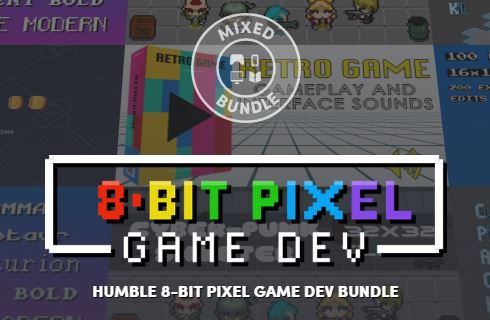
A campanha no Humble com o título: 8-Bit Pixel Game Dev Bundle
Os conteúdos são:
Fantasy Enemy Creatures
Pixelart Game Backgrounds
Super Pixel Objects and Items
Food and Kitchenware Pixel Art Icons
Textures
Golden Coin, Rotate Sequence
World Map Pixel Art Tileset
Game Collectable Pack Pixelart
Will’s Magic Pixel Particle Effects
Deep Forest 16 Colour Tileset
Pixel House Set
8-Bit Retro Game SFX
Arcade Item Pack
Cyber Punk Shooter
Pixel Art Spaceships for Shmup
Side-scroller Spaceships
Pixel Art Bedroom Kit
Pixel Art Tileset Collection
Adventure Package
Pixel Font Pack
Fantasy Platformer Pixelart Props
Zombie Survival
Valiant Knight Pixel Art Character
Pure 8-Bit Magic (12 Royalty Free Tracks)
Pixel Art Farm Kit
8-Bit SFX Pack
Zombie Package
Pixel Art Kitchen Kit
Castle Dungeon – Fantasy Pixelart Tileset
Pixel Art Game Kit
Customizable Pixel Art Character Kit
Fantasy Medieval
Tiny RPG Dungeon
8-Bit Tunes 8-Pack
Pixel Art Sci-fi Space Station
Pixel Art Forest Kit
Fantasy Forest Pixel Art Tileset
Music Loops for 8-Bit Games
Space Package
Simple Pirate Characters
Zombie Characters
Simple Medieval Characters
+infos(a campanha): LINK
Sons, musica… aceder a uns quantos de forma gratuita
Alguns repositórios de sons e musicas gratuitas para serem usados em videojogos:
digccMixter (http://dig.ccmixter.org/)
PlayOnLoop (https://www.playonloop.com/)
Bensound (https://www.bensound.com/)
Twin Musicom (http://www.twinmusicom.org/)
ZapSplat (https://www.zapsplat.com/)
Incompetech (https://incompetech.com/)
MusOpen (https://musopen.org/)
Bandcamp (https://bandcamp.com/)
NetLabels (https://netlabels.org/)
PartnersInRhyme (https://www.partnersinrhyme.com/)
IndieGameMusic (http://indiegamemusic.com/)
FreeSoundtrackMusic (https://www.freesoundtrackmusic.com/)
Cursos (2D e 3D) acerca do Godot Engine
Está a decorrer uma campanha no kickstarter acerca do desenvolvimento de jogos usando o Godot Engine.. a referencia é de 20 euros para um versão indie e 40 euros para lições para profissionais.
desta mesma malta existe um conjunto alargado de coisas gratuitas como videos e documentação
+infos(campanha): LINK
+infos(videos): LINK
+infos(documentação): LINK
Desenvolvimento na YoYo Games (GameMaker)..
Uma história interessante acerca de alguém que participou no desenvolvimento do GameMaker, desde a sua verão 1 até ao GMS2.
+infos(a fonte de informação): LINK
Uma história ilustrada sobre o desenvolvimento dos videojogos
É uma interessante contar de histórias acerca do desenvolvimento dos videojogos, deste o ano de 1940 até 2017. A sequência de imagens ilustra os vários anos contendo mesmo a informação técnica que levou à aquisição das patentes.
+infos(fonte da informação): LINK
Video Game History (mais uma história)
Video Game History
Today, video games make up a $100 billion global industry, and nearly two-thirds of American homes have household members who play video games regularly. And it’s really no wonder: Video games have been around for decades and span the gamut of platforms, from arcade systems, to home consoles, to handheld consoles and mobile devices. They’re also often at the forefront of computer technology.
The Early Days
Though video games are found today in homes worldwide, they actually got their start in the research labs of scientists.
In 1952, for instance, British professor A.S. Douglas created OXO, also known as noughts and crosses or a tic-tac-toe, as part of his doctoral dissertation at the University of Cambridge. And in 1958, William Higinbotham created Tennis for Two on a large analog computer and connected oscilloscope screen for the annual visitor’s day at the Brookhaven National Laboratory in Upton, New York.
In 1962, Steve Russell at the Massachusetts Institute of Technology invented Spacewar!, a computer-based space combat video game for the PDP-1 (Programmed Data Processor-1), then a cutting-edge computer mostly found at universities. It was the first video game that could be played on multiple computer installations.
Dawn of the Home Console
In 1967, developers at Sanders Associates, Inc., led by Ralph Baer, invented a prototype multiplayer, multi-program video game system that could be played on a television. It was known as “The Brown Box.”
Baer, who’s sometimes referred to as Father of Video Games, licensed his device to Magnavox, which sold the system to consumers as the Odyssey, the first video game home console, in 1972. Over the next few years, the primitive Odyssey console would commercially fizzle and die out.
Yet, one of the Odyssey’s 28 games was the inspiration for Atari’s Pong, the first arcade video game, which the company released in 1972. In 1975, Atari released a home version of Pong, which was as successful as its arcade counterpart.
Magnavox, along with Sanders Associates, would eventually sue Atari for copyright infringement. Atari settled and became an Odyssey licensee; over the next 20 years, Magnavox went on to win more than $100 million in copyright lawsuits related to the Odyssey and its video game patents.
In 1977, Atari released the Atari 2600 (also known as the Video Computer System), a home console that featured joysticks and interchangeable game cartridges that played multi-colored games, effectively kicking off the second generation of the video game consoles.
The video game industry had a few notable milestones in the late 1970s and early 1980s, including:
The release of the Space Invaders arcade game in 1978
The launch of Activision, the first third-party game developer (which develops software without making consoles or arcade cabinets), in 1979
The introduction to the United States of Japan’s hugely popular Pac-Man
Nintendo’s creation of Donkey Kong, which introduced the world to the character Mario
Microsoft’s release of its first Flight Simulator game
The Video Game Crash
In 1983, the North American video game industry experienced a major “crash” due to a number of factors, including an oversaturated game console market, competition from computer gaming, and a surplus of over-hyped, low-quality games, such as the infamous E.T., an Atari game based on the eponymous movie and often considered the worst game ever created.
Lasting a couple of years, the crash led to the bankruptcy of several home computer and video game console companies.
The video game home industry began to recover in 1985 when the Nintendo Entertainment System (NES), called Famicom in Japan, came to the United States. The NES had improved 8-bit graphics, colors, sound and gameplay over previous consoles.
Nintendo, a Japanese company that began as a playing card manufacturer in 1889, released a number of important video game franchises still around today, such as Super Mario Bros., The Legend of Zelda, and Metroid.
Additionally, Nintendo imposed various regulations on third-party games developed for its system, helping to combat rushed, low-quality software. Third-party developers released many other long-lasting franchises, such as Capcom’s Mega Man, Konami’s Castlevania, Square’s Final Fantasy, and Enix’s Dragon Quest (Square and Enix would later merge to form Square Enix in 2003).
In 1989, Nintendo made waves again by popularizing handheld gaming with the release of its 8-bit Game Boy video game device and the often-bundled game Tetris. Over the next 25 years, Nintendo would release a number of successful successors to the Game Boy, including the Game Boy color in 1998, Nintendo DS in 2004, and Nintendo 3DS in 2011.
The First Console War
Also in 1989, Sega released its 16-bit Genesis console in North America as a successor to its 1986 Sega Master System, which failed to adequately compete against the NES.
With its technological superiority to the NES, clever marketing, and the 1991 release of the Sonic the Hedgehog game, the Genesis made significant headway against its older rival. In 1991, Nintendo released its 16-bit Super NES console in North America, launching the first real “console war.”
The early- to mid-1990s saw the release of a wealth of popular games on both consoles, including new franchises such as Street Fighter II and Mortal Kombat, a fighting game that depicted blood and gore on the Genesis version of the game.
In response to the violent game (as well as congressional hearings about violent video games), Sega created the Videogame Rating Council in 1993 to provide descriptive labeling for every game sold on a Sega home console. The council later gives rise to the industry-wide Entertainment Software Rating Board, which is still used today to rate video games based on content.
In the mid-1990s, video games leaped to the Big Screen with the release of the Super Mario Bros. live-action movie in 1993, followed by Street Fighter and Mortal Kombat over the next two years. Numerous movies based on video games have been released since.
With a much larger library of games, lower price point, and successful marketing, the Genesis had leapfrogged ahead of the SNES in North America by this time. But Sega was unable to find similar success in Japan.
The Rise of 3D Gaming
With a leap in computer technology, the fifth generation of video games ushered in the three-dimensional era of gaming.
In 1995, Sega released in North America its Saturn system, the first 32-bit console that played games on CDs rather than cartridges, five months ahead of schedule. This move was to beat Sony’s first foray into video games, the Playstation, which sold for $100 less than the Saturn when it launched later that year. The following year, Nintendo released its cartridge-based 64-bit system, the Nintendo 64.
Though Sega and Nintendo each released their fair share of highly-rated, on-brand 3D titles, such as Virtua Fighter on the Saturn and Super Mario 64 on the Nintendo 64, the established video game companies couldn’t compete with Sony’s strong third-party support, which helped the Playstation secure numerous exclusive titles.
Simply put: Sony dominated the video game market and would continue to do so into the next generation. In fact, the Playstation 2, released in 2000 and able to play original Playstation games, would become the best-selling game console of all time.
The Playstation 2, which was the first console that used DVDs, went up against the Sega Dreamcast (released in 1999), the Nintendo Gamecube (2001), and Microsoft’s Xbox (2001).
The Dreamcast—considered by many to be ahead of its time and one of the greatest consoles ever made for several reasons, including its capability for online gaming—was a commercial flop that ended Sega’s console efforts. Sega pulled the plug on the system in 2001, becoming a third-party software company henceforth.
Modern Age of Gaming
In 2005 and 2006, Microsoft’s Xbox 360, Sony’s Playstation 3, and Nintendo’s Wii kicked off the modern age of high-definition gaming. Though the Playstation 3—the only system at the time to play Blu-rays—was successful in its own right, Sony, for the first time, faced stiff competition from its rivals.
The Xbox 360, which had similar graphics capabilities to the Playstation 3, was lauded for its online gaming ecosystem and won far more Game Critics Awards than the other platforms in 2007; it also featured the Microsoft Kinect, a state-of-the-art motion capture system that offered a different way to play video games (though the Kinect never caught on with core gamers or game developers).
And despite being technologically inferior to the other two systems, the Wii trounced its competition in sales. Its motion-sensitive remotes made gaming more active than ever before, helping it appeal to a much larger slice of the general public, including people in retirement homes.
Towards the end of the decade and beginning of the next, video games spread to social media platforms like Facebook and mobile devices like the iPhone, reaching a more casual gaming audience. Rovio, the company behind the Angry Birds mobile device game (and, later Angry Birds animated movie), reportedly made a whopping $200 million in 2012.
In 2011, Skylanders: Spyro’s Adventure brought video games into the physical world. The game required players to place plastic toy figures (sold separately) onto an accessory, which reads the toys’ NFC tags to bring the characters into the game. The next few years would see several sequels and other toy-video game hybrids, such as Disney Infinity, which features Disney characters.
The 8th and current generation of video games began with the release of Nintendo’s Wii U in 2012, followed by the Playstation 4 and Xbox One in 2013. Despite featuring a touch screen remote control that allowed off-TV gaming and being able to play Wii games, the Wii U was a commercial failure—the opposite of its competition—and was discontinued in 2017.
In 2016, Sony released a more powerful version of its console, called the Playstation 4 Pro, the first console capable of 4K video output. In early 2017, Nintendo released its Wii U successor, the Nintendo Switch, the only system to allow both television-based and handheld gaming. Microsoft will release its 4K-ready console, the Xbox One X, in late 2017.
With their new revamped consoles, both Sony and Microsoft currently have their sights set on virtual reality gaming, a technology that has the potential to change the way players experience video games.
Sources
‘Spacewar!’ The story of the world’s first digital video game. The Verge.
The First Video Game? BNL.
The Brown Box, 1967–68. Smithsonian.
Inventor Ralph Baer, The ‘Father Of Video Games,’ Dies At 92. NPR.
The Video Game Revolution. PBS.
Video Game History Timeline. Museum of Play.
The Surprisingly Long History of Nintendo. Gizmodo.
How Tetris Helped Game Boy Take Over the World. Gizmodo.
How Sonic Helped Sega Win the Early 90s Console Wars. Kotaku.
Sega and Nintendo Console War: Greatest Moments. Prima Games.
Angry Birds Maker Rovio Reports $200 Million In Revenue, $71 Million In Profit For 2012. Business Insider.
Here’s who won each console war. Venturebeat.
The History Of Gaming: An Evolving Community. TechCrunch.
The History of Video Game Consoles. TIME.
+infos(fonte da informação): LINK
Linhas de apoio: Desenvolvimento de Video Jogos!
Existe todos os anos um programa Europeu com vista ao apoio de pequenas editoras de videojogos em Portugal. Este ano o concurso aceita candidaturas até final de fevereiro..
+infos(oficial): LINK
Estatísticas para que te quero?
A leitura de estatisticas deve ser lida com muita calma e com ponderação. Contudo é uma fonte de informação acerca dos caminhos que os gamers apostam, e afinal o que é um videojogo sem os seus gamers?
+infos(Sony PlayStation 4 ): LINK
O desenvolvimento de videojogos em Portugal..
Um texto simples, acerca do estado da nação no desenvolvimento de videojogos em Portugal que foram apresentados para um concurso :)
+infos(Desenvolvimento de videojogos portugueses no bom caminho): LINK
Motores de videojogos, optar por qual?
Post interessante acerca da escolha de um motor de videojogo com a conclusão a apontar para o open source nomeadamente o Godot :)
Vale a pena ler.
+infos(Godot: the Game-Changer for GameDevs): LINK
